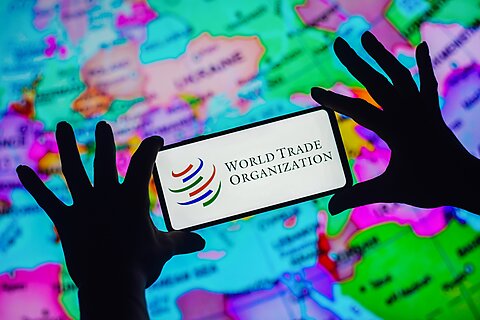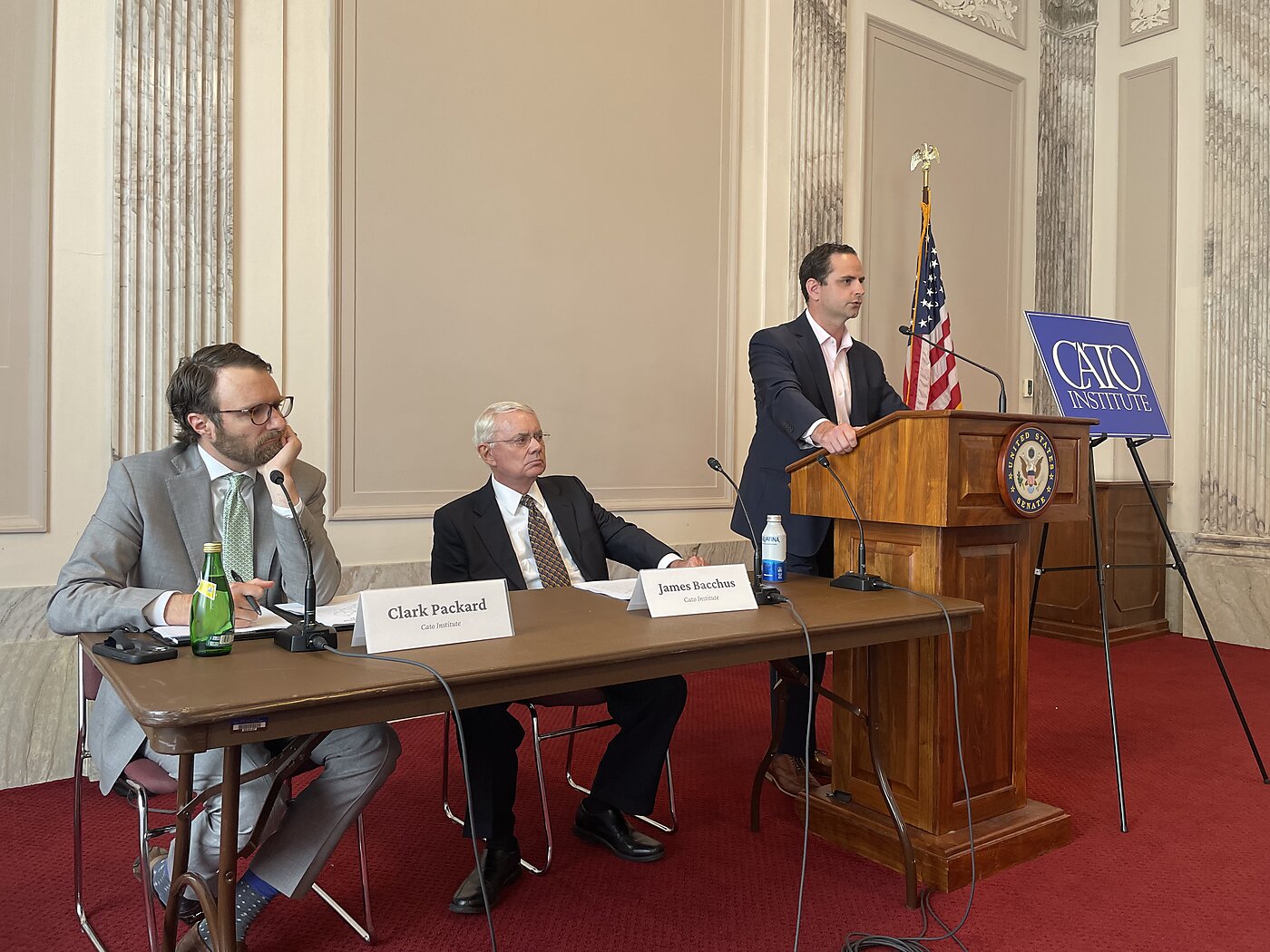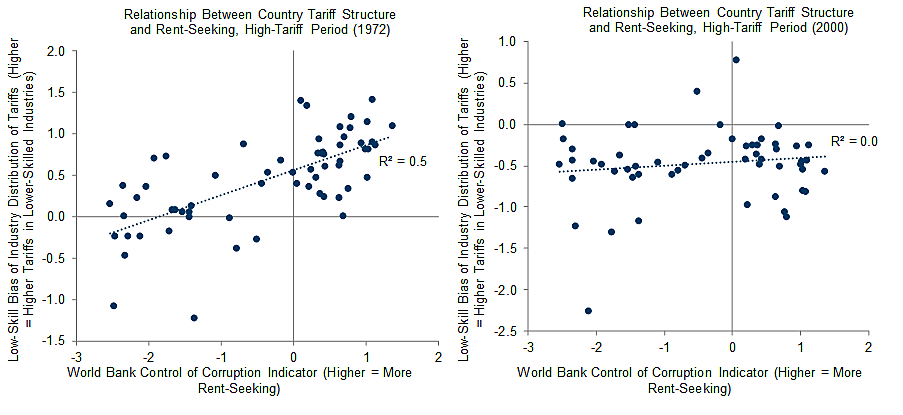Clark Packard
Earlier this year, Rep. Tom Tiffany (R‑WI) introduced a resolution to withdraw the United States from the World Trade Organization (WTO). The resolution is privileged so it will force a vote on the House floor in the coming months. Former chairman of the WTO’s Appellate Body and current Cato Institute scholar James Bacchus and I participated in a Cato briefing event on Capitol Hill earlier today, where we explained why such a move would severely damage US economic interests and its global influence.
As Bacchus documents in a forthcoming Cato Institute paper, the United States has benefited tremendously from its participation in the WTO and its predecessor, the General Agreement on Tariffs and Trade (GATT). The GATT and WTO have facilitated a massive expansion in global trade as tariffs have fallen and red tape has been cut. This led to lower prices for American consumers—both firms and families—and greater access to foreign markets for American producers. Withdrawing from the WTO would open the door to higher prices and fewer varieties and allow foreign governments to increase tariffs and impose nontariff barriers on American goods and services. Indeed, the Bertelsmann Stiftung, a German think tank, in 2019 found that WTO membership increased the US Gross Domestic Product by about $87 billion, more than any other WTO member country.
Likewise, coming on the heels of President Trump’s reckless and ill-advised trade wars, withdrawing from the WTO would further erode the United States’ global standing. As the world’s largest economy, the US has historically played a leading role within the WTO system. In our absence, much of the leadership within the organization would fall to China, the second-largest economy. In calling for the US to withdraw from the organization, Rep. Tiffany argued that the WTO system has “overlooked” several of China’s “unfair” trade practices. It seems odd, then, to advocate a position that would grant China a more commanding role within the WTO system.
Some libertarians and market-oriented analysts have a complicated relationship with trade agreements. Most would prefer unilateral reductions in tariffs and nontariff barriers since the economic benefits of global trade largely flow from imports. Politically, however, trade agreements play a valuable role in constraining the protectionist proclivities of politicians and regulators.
A higher tariff regime increases incentives for businesses to engage in rent-seeking—that is, bending government power to confer economic benefits on themselves or disadvantage their competitors. New research from Goldman Sachs suggests that multilateral trade agreements through the GATT/WTO system since the early 1970s “brought down tariff levels and reduced governments’ discretion in imposing them.” This means, they add, that the “relationship between countries’ tariff structures and rent-seeking measures” largely disappeared.
(Source: Jan Hatzius et al., “The Long-Term Effects of Higher Tariffs (Abecasis),” Goldman Sachs, May 14, 2025)
To be sure, the WTO system needs reform. Membership within the organization, however, has conferred immense benefits on the United States and its citizens. Proposals to withdraw the United States from the WTO do not stand up to serious scrutiny and would be a colossal policy misstep.



